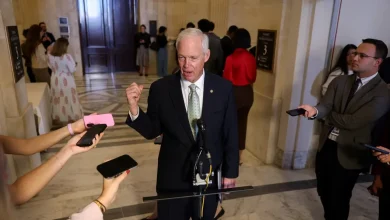Bill C-12 Threatens Thousands of Business Incubator Applications Under Canada’s Start-Up Visa Program

On This Page You Will Find
- Overview of Bill C-12 and its impact on Canadian immigration
- Risks facing Start-Up Visa applicants under new IRCC powers
- Backlog statistics and Ministerial Instructions (MI72) compliance
- Details on non-compliant business incubators
- Legal remedies and options for affected applicants
- Potential expansion of cancellation powers to other immigration programs
Immigration, Refugees and Citizenship Canada (IRCC) is poised to undertake a major overhaul of its immigration application processing system through the implementation of Bill C-2, replaced by Bill C-12. Introduced on October 7, 2025, Bill C-12 will reinforce and expand on the priorities outlined initially in Bill C-2. It introduces expansive new powers allowing the cancellation of pending applications across many immigration streams. This legislative change, currently undergoing second reading, will have severe and far-reaching consequences, particularly for those caught in the substantial backlogs that characterize the current system, when it is passed.
A significant impact is expected within the Canada Start-Up Visa program, where many thousands of applications remain pending. Nearly 80% of designated business incubators fail to meet the MI72 Ministerial Instructions dated April 30, 2024. Shockingly, new applications continue to be submitted by applicants, largely from South East Asia, China and Iran, being supported by government designated business incubators that fail to meet the April 2024 MI’s. With Bill C-12, IRCC gains the authority to cancel such applications en masse, effectively clearing a massive backlog that has been dragging down overall processing times.
Currently, IRCC publishes processing times that purportedly indicate how long applicants can expect to wait. However, these times appear strategically communicated to “dissuade” prospective applicants, primarily business incubators, who lack deeper insights into the system’s challenges, which results in a credibility gap.
The current published times are thus unreliable and arguably meaningless, especially for new applicants backed by designated entities providing committed capital investment, or less than a handful of active incubators who qualify for prioritization under April 2024 MI’s. These “clean” applicants face published, but only theoretical delays that will far exceed actual processing time, undermining trust in the system’s transparency and efficiency.
Bill C-12’s authority to suspend or terminate application processing will align processing capacities with actual governmental goals of controlled migration, reducing queues substantially. The unintended – or perhaps intended – effect of such a legislative reset is to recalibrate immigration intake to manageable levels but at the cost of erasing the efforts and hopes of thousands who have invested years navigating the system. Yet, despite this, the legislation also allows certain Start-Up Visa applicants to access early entry work and residence permits for themselves and accompanying family members soon after submitting their permanent residence files. This is an important nuance demonstrating that priority processing and early settlement opportunities remain available for certain qualifying applicants.
Given these realities, prospective applicants should exercise caution. Particularly, they should avoid engaging with designated incubators that do not meet Ministerial Instructions (MI72) as doing so increases the likelihood of cancellation under the forthcoming legislation. It is critically questionable how IRCC continues to accept new applications from designated entities that fail to comply with clear ministerial standards. This practice undermines the integrity of the Start-Up Class and exacerbates systemic delays.
Applicants and immigration service providers alike must understand these dynamics and tread carefully, prioritizing engagement only with fully compliant designated entities with prioritization standing and managing expectations accordingly.
The current published processing times should not be viewed as reliable forecasts but rather, as strategic signals while the structural changes ushered in by Bill C-12 promise to reshape the Canadian immigration landscape profoundly in the near future.
How many SUV pending applications in the backlog do not meet Ministerial Instructions and are at risk of being affected?
As of mid-2025, the Canada Start-Up Visa (SUV) backlog has grown to approximately 42,200 pending applications (17,900 main applicants plus dependents), with many applicants experiencing waits exceeding three years, and some processing timelines (for applicants not being supported by MI72 designated organizations) stretching beyond a decade for new filings.
While exact figures on how many of these pending applications are connected to designated incubators or entities that do not meet the April 30, 2024 Ministerial Instructions (MI72) are not officially broken out in public data, various sources and policy analyses indicate a very significant, large portion of the backlog involves applications linked to designated business incubator entities that do not meet April 2024 MI’s.
The refusal rates from designated business incubators surged dramatically to 73% in 2025, which reflects a growing number of rejected or at-risk files tied to compliance failures under the Ministerial Instructions. Due to IRCC’s imposition of strict intake caps limiting each designated organization to a maximum of 10 new Start-Up Visa applications per year, and a cutback in annual PR allocations, many applications previously accepted under earlier, less stringent criteria remain pending but do not meet current compliance standards, placing them at risk of cancellation.
Industry experts and media reports estimate that at least tens of thousands—plausibly in the range of 15,000 to 25,000—of these 42,000 pending SUV applications are supported largely by designated business incubators that fail to meet MI72 standards, and thus are at substantial risk under Bill C-12’s enforcement powers to cancel pending applications en masse.
How many business incubators are currently designated by IRCC as meeting Ministerial Instructions?
From the official IRCC designated organizations list for the Canada Start-Up Visa:
- There are 56 designated business incubators listed.
- Among these, only 12 are marked as priority processing incubators meeting MI72 standards.
Thus 78.5% of current designated business incubators do not meet Ministerial Instructions MI72 and every one of the pending applicants from this cohort being supported by such entities, regardless of when they were submitted, are at risk of being cancelled, under Bill C-12.
What legal remedies exist for applicants if IRCC cancels pending applications?
Applicants whose applications are cancelled by IRCC have limited but marginal legal remedies to challenge or respond to such cancellations:
- Judicial Review: The primary remedy is applying for judicial review at the Federal Court of Canada. Applicants can challenge IRCC’s decision to cancel on grounds such as procedural fairness, legitimate expectation, or errors of law or fact in the cancellation decision. Judicial review delays the effect of cancellation pending court decision when a stay is granted. If IRCC meets specific criteria that will likely be in the new legislation, it will likely be in position to defend such challenges, as it has been able to accomplish in the past.
- Reconsideration Requests: In some cases, applicants may submit requests for reconsideration to IRCC, especially if new evidence or circumstances arise. This does not guarantee reversal but provides IRCC an opportunity to re-assess.
- Administrative Appeals: Where applicable (e.g., sponsorship refusals), applicants may appeal decisions to the Immigration Appeal Division (IAD) or Refugee Appeal Division (RAD) of the Immigration and Refugee Board. However, many cancellations related to removal or inadmissibility may not be appealable.
- Refund of Fees: Regulations often require IRCC to refund fees for cancelled applications, although this provides no status remedy. However this will not address the fees paid to third-parties to support such applications.
- Filing New Applications: Applicants may submit fresh applications under compliant streams or with qualified designated entities if their previous ones are cancelled, though prior cancellations could affect credibility.
- Seeking Legal Advice: Applicants are encouraged to obtain legal counsel to navigate complex remedies, challenge cancellations effectively, or explore humanitarian and compassionate grounds for relief.
While IRCC enjoys broad discretionary powers under the Immigration and Refugee Protection Act, courts continue to emphasize procedural fairness and legitimate expectations as safeguards against arbitrary cancellations unsupported by clear legislation. Success rates depend on the specific facts, reasons offered by IRCC, and the applicant’s ability to demonstrate a breach of fairness or statutory authority.
Bill C-12 strategically drafted will empower IRCC with the legal authority to cancel pending applications retroactively.
Policy and Legislative Context
What specific sections of Bill C‑12 grant IRCC the power to cancel pending applications, and how do these differ from existing statutory authorities under the Immigration and Refugee Protection Act (IRPA)?
Bill C‑12 introduces new subsections under Part 1 of the Immigration and Refugee Protection Act (IRPA), empowering the Minister to terminate or suspend processing of entire categories of applications where backlogs impede program integrity or operational efficiency. Unlike prior “transitional provisions” in Budget Implementation Acts, which allowed targeted cancellations (e.g., 2012’s Federal Skilled Worker backlog elimination), Bill C‑12 creates standing authority for cancellation through regulatory instruments and Ministerial Instructions. It thus institutionalizes a discretionary power rather than relying on one‑off statutory amendments.
Does Bill C‑12 include any safeguards or compensation provisions for applicants adversely affected by mass cancellations?
The bill omits explicit compensation clauses. It provides only that application fees may be refunded upon termination. No compensatory or transitional relief—such as reinstatement eligibility, priority for re‑filing, or alternative pathways—is guaranteed. The absence of meaningful safeguards exposes IRCC to possible judicial review challenges alleging breach of fairness duties or disproportionate state action.
Program Impact and Implementation
How will IRCC determine which Start-Up Visa applications to cancel first – through chronological filing order, compliance ranking, or randomization?
Cancellation selection is expected to follow compliance hierarchy rather than purely first-in, first-out chronological order. IRCC will likely prioritize termination of applications linked to incubators failing Ministerial compliance checks under MI72. Within compliant pools, processing triage may follow first‑in, first‑out principles or performance‑based filters emphasizing project viability and confirmed investment capital.
Can applicants who receive early work and residence permits under the Start-Up Visa still maintain those rights if their permanent residence application is subsequently cancelled?
Applicants who receive early work and residence permits under the Canada Start-Up Visa program cannot necessarily maintain those rights if their permanent residence application is subsequently cancelled. Recent regulatory changes in Canada, effective as of January 31, 2025, grant Immigration, Refugees and Citizenship Canada (IRCC) officers explicit authority to cancel approved temporary resident documents, including work permits, when the holder no longer meets eligibility requirements or if the underlying permanent residence application is terminated. This means that if a Start-Up Visa applicant’s permanent residence application is cancelled—whether due to non-compliance of the designated incubator, failure to meet program criteria, or other reasons—their associated temporary permits (work and residence permits granted under the Start-Up Visa scheme) may also be revoked or become invalid.
Could foreign entrepreneurs pursue legal remedies or seek damages against IRCC or designated entities due to resulting financial losses?
Litigation options are narrow. Applicants can seek judicial review alleging abuse of discretion or breach of fairness, though damages against the Crown for policy cancellations are rarely awarded. More viable claims may arise against designated entities under contract law or negligence principles if incubators misrepresented compliance or continued accepting fees when designation was at risk.
Could the IRCC cancellation authority extend to other programs experiencing backlogs, such as Federal Skilled Worker or Provincial Nominee Program streams?
Yes. Bill C‑12’s framework is deliberately broad, allowing future application to other pathways via additional Ministerial Instructions. While immediate focus is on Start‑Up and certain pilot programs, the same legal logic – reducing administrative burden – can justify similar actions across economic or family classes if politically expedient.
FAQ
What is Bill C-12 and how does it affect immigration applicants?
Bill C-12 strengthens IRCC’s authority to cancel or suspend immigration applications across multiple programs, including the Start-Up Visa, to manage backlogs and enforce compliance with Ministerial Instructions.
Why are Start-Up Visa applicants at particular risk?
Thousands of Start-Up Visa applications largely tied to business incubators that do not meet MI72 Ministerial Instructions. Bill C-12 will empower IRCC to cancel these pending files en masse to clear the backlog.
How many Start-Up Visa applications could be cancelled?
Of about 42,200 (including accompanying dependents) pending Start-Up Visa applications, an estimated 15,000 to 25,000 are connected to non-compliant business incubators and may be cancelled once Bill C-12 takes effect.
What legal options exist if an application is cancelled?
Applicants can seek judicial review, request reconsideration, or file new compliant applications. However, compensation or reinstatement rights are limited under current legislative provisions.
Can these powers extend to other immigration programs?
Yes. Bill C-12’s framework is broad enough for future use in other streams like the Federal Skilled Worker Program or PNP, should IRCC choose to manage their backlogs similarly.
Will published processing times decline for new and pending prioritized applications under the Start-Up Business Class?
Yes. The forecasted processing times for new and pending applications with prioritization status under MI72 will substantially decline to manageable levels. This will occur soon after the current application backlog is reduced by IRCC under Bill C-12.





